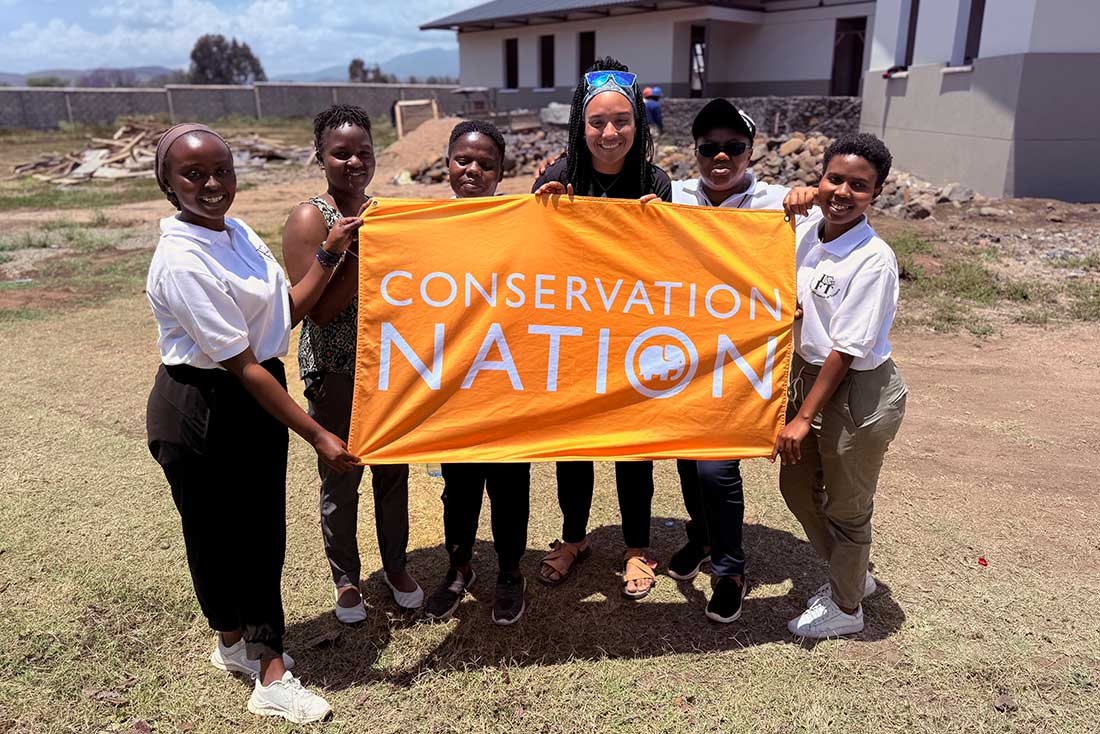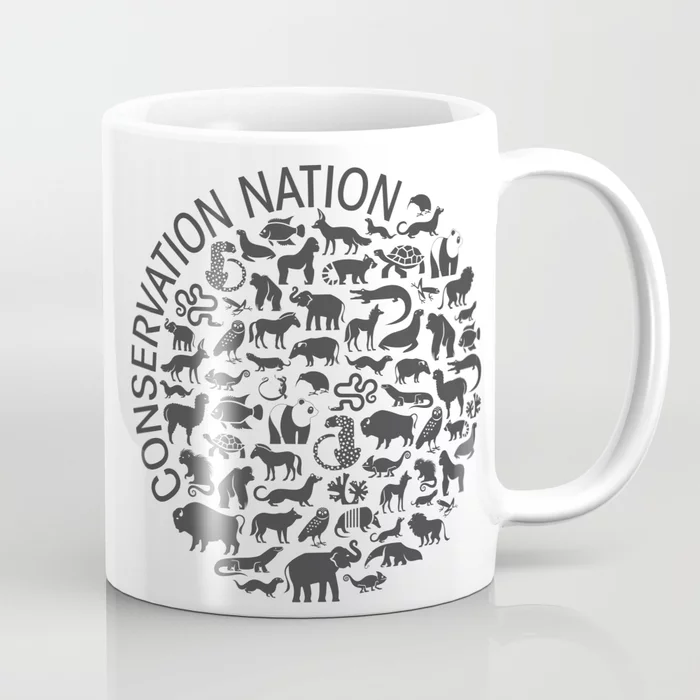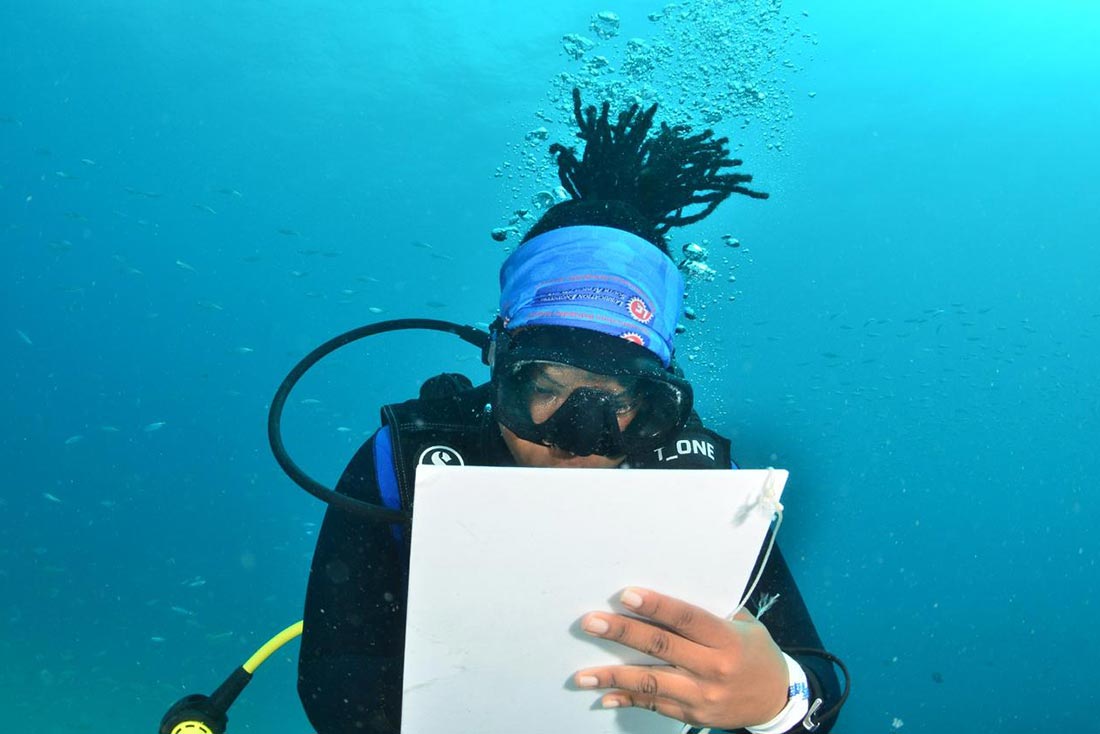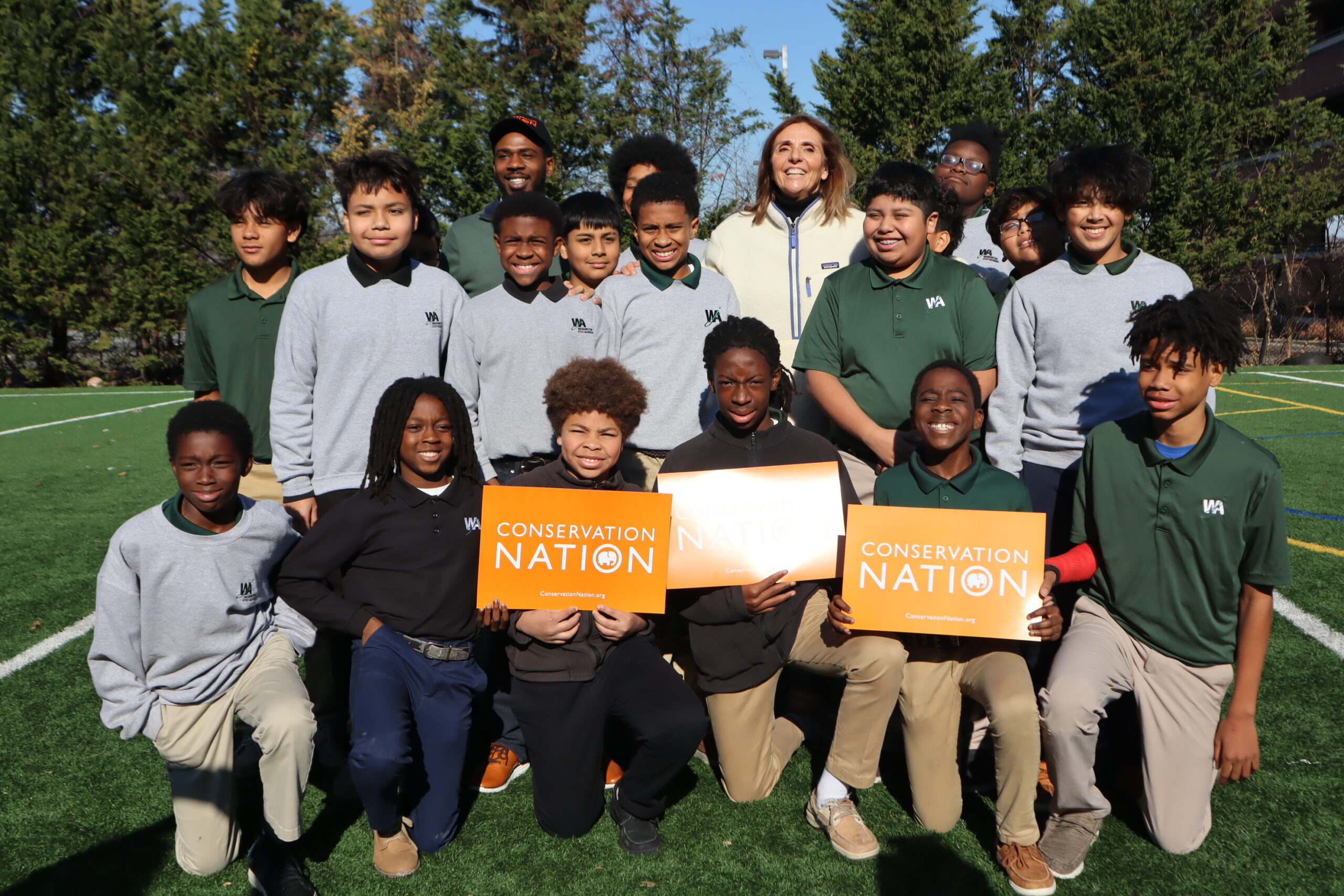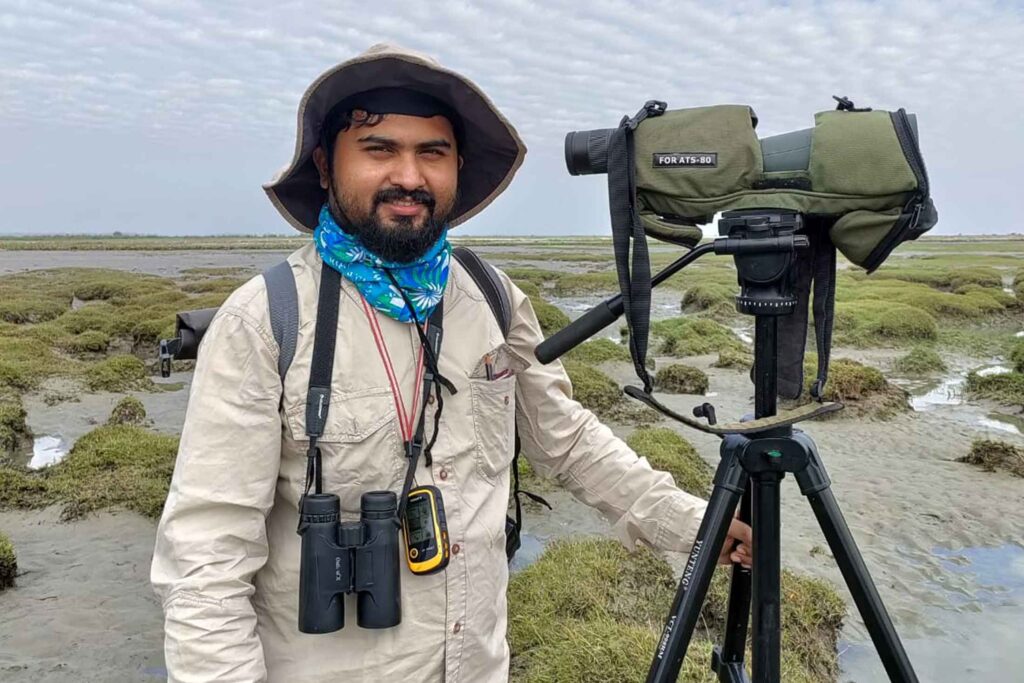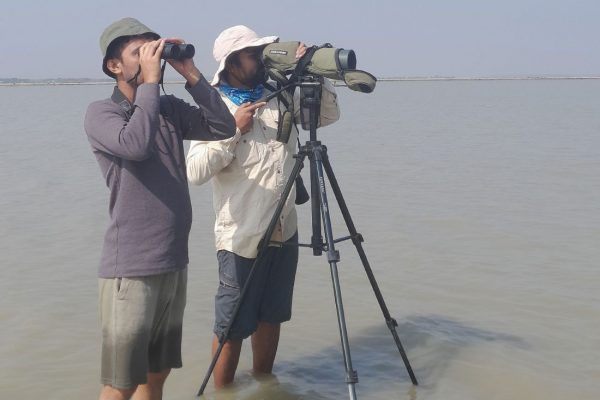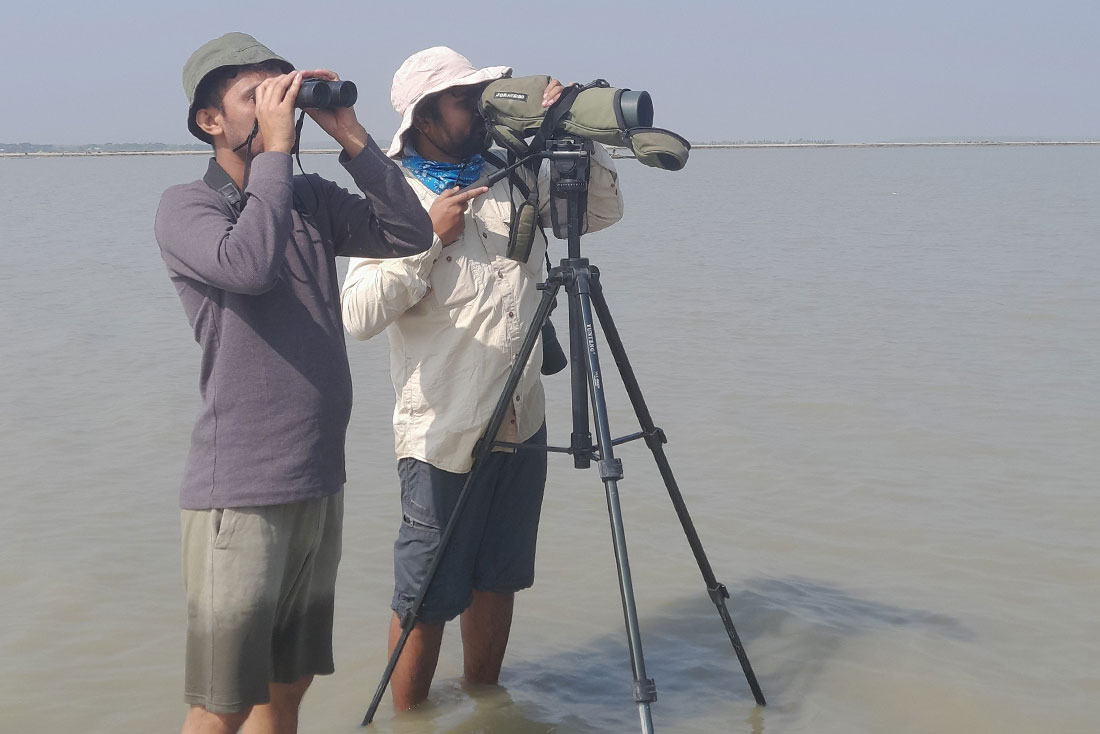Naim Khandakar is one of Conservation Nation’s 2023 conservationist grant winners. Growing up in a rural area in the deltaic plains of Bangladesh, he was always passionate about nature. But his interest in birds blossomed when he began his undergraduate studies — a time in which he braved choppy sea waves, waded through knee-deep mudflats, and learned much more about the specific issues affecting waterbirds.
Naim received his BSc in zoology and MSc in zoology with a specialization in wildlife and biodiversity conservation from Jagannath University in 2018, and studied the winter ecology of the spoon-billed sandpiper, black-tailed godwit, and bar-tailed godwit at the Nijhum Dweep National Park in Bangladesh for his postgraduate thesis. After completing his studies, Naim helped develop and implement marine wildlife and habitat protection plans for local communities with the Wildlife Conservation Society Bangladesh, and then, in 2023, began working as a research assistant in the department of zoology at Jagannath University. At the school, he focuses on migratory and foraging ecology, identifying threats to and conservation of globally threatened waterbirds in Bangladesh.
Foraging Ecology and Community-Based Conservation of Endangered Indian Skimmers
Naim’s project is focused on the Indian skimmer, an endangered bird that primarily lives in Asia. As much as half the global population of Indian skimmers live at Nijhum Dweep National Park in Bangladesh during their non-breeding season, and while threats to the bird are studied, there is a knowledge gap on the Indian skimmer’s diet and foraging habits — and better knowledge can be invaluable in designing and implementing conservation strategies for the bird.
Naim is planning to determine the Indian skimmer’s diet for the first time, the availability of prey in the area, and how local people feel about the bird. He is planning to establish a School Bird Club for local students to monitor the Indian skimmer population. He will share his results with the Bangladesh Forest Department so it can create a management plan for the bird, and publish several peer-reviewed articles on his findings.

